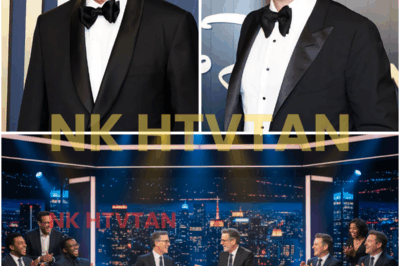Phillies Karen’s Hidden Heartbreak: Husband’s Shocking Confession — “I Tried to Stop Her, But I Was So Ashamed” — The Ball That Broke a Marriage
On most game nights, a ballpark is where families stitch memories into the fabric of summer—where one swing can turn strangers into friends and a scuffed baseball into a family heirloom. But sometimes, a souvenir doesn’t bring people closer; it pulls them apart. That’s the painful twist behind the story of the woman the internet branded “Phillies Karen,” a fan whose split-second decision during a scramble for a home run ball set off a chain reaction no one in her section could have imagined. Now her husband has stepped forward with a confession that reframes what the cameras didn’t catch: “I tried to stop her,” he says, “but I was so ashamed.” His words peel back the curtain on the private fallout behind the headlines—regret, distance, and a marriage under pressure from a ball that never should have mattered this much. In a season full of comebacks, this family is fighting for one of their own.
A Perfect Night—Until It Wasn’t
September 5, 2025. LoanDepot Park is humming with late-summer electricity. The Philadelphia Phillies are in town, and the visiting crowd is loud—the kind of loud that makes visiting players feel at home. The hot-dog steam and the scent of fresh-cut grass ride the evening air. In the fourth inning, Phillies outfielder Harrison Bader steps in and gets a pitch he can lift. He barrels it, and the ball soars toward the left-field bleachers, a clean arc that turns heads and sends fans into that familiar, joyful scramble.
Down the row sits a dad named Drew Feltwell, beside him a boy on the cusp of ten, cap pulled low, glove at the ready, birthday grin already halfway formed. The ricochet is quick and chaotic, and Drew snatches the ball. He doesn’t look at the scuffs. He doesn’t fist-pump. He turns and drops it straight into his son Lincoln’s glove. That’s the ballpark ritual at its best: catch, pass, remember forever. The section applauds. A stranger claps Drew on the shoulder. Lincoln hugs the ball like it might float away.
A few seats over, a woman in a Phillies hoodie—later an unwilling household name—rises. She believes the ball grazed her first in the scramble. She believes it’s hers. She starts toward the father and son, words sharpened by adrenaline. In the crush of noise, the exchange hardens. Arms gesture. Faces flush. What should be a tiny moment of etiquette becomes a canyon of principle. And then, with his son watching, Drew makes a decision he hopes will keep the night from unraveling: he takes the ball back from Lincoln and hands it over.
The air leaves the section. A few scattered boos, a new hush. Lincoln’s smile disappears. The woman turns away with the baseball. What none of them fully realizes is that the moment isn’t just contained to Section Left; it’s already on screens around the park, then on screens beyond it, ready to be looped, captioned, and argued over.
A Husband Finds His Voice
For days after, the frame that dominated conversation was the boy’s disappointment and the woman’s determination. But there was another figure in the shot—the woman’s husband—quiet, stricken, trying and failing to reel things back before the moment turned into a memory for all the wrong reasons.
In a rare sit-down, he recounts the second-by-second breakdown—not to excuse, not to inflame, but to explain. “I saw her stand up, and I knew it would go south fast,” he says. “I reached for her sleeve and said, ‘Let it go. It’s a kid.’ She didn’t hear me. Maybe she didn’t want to. The noise, the adrenaline—everything felt louder than common sense.”
He doesn’t spare himself. “When it started, I froze. I should’ve done more, sooner. That’s on me. The worst part is watching your partner become the focus of a stadium’s disapproval and realizing you’ve run out of ways to fix it.”
Shame arrived before the replays did. He remembers pulling his cap low as the booing swelled, remembers the heavy quiet between them after the inning ended, remembers walking the concourse and seeing faces tilt toward them, processing, judging, moving on. “I love her fire,” he says. “It’s part of why we’ve lasted. But that night, her fire was gasoline.”
After the Lights: Silence, Second-Guessing, Slow Drifts
Hotel-room quiet after a long game can feel cavernous. He describes the first night as an echo chamber of clips and angles—angles that made the conflict look simple when it wasn’t. “She felt wronged. I felt embarrassed. We both felt misunderstood.”
The next morning brought messages from friends, then questions at work. Neighbors who once traded lawn tools and playoff predictions now offered careful, clipped greetings. The couple’s routines—weekday commutes, weekend errands, Sunday coffee—picked up a hitch. Even their kids, longtime ballpark pals and highlight-reel connoisseurs, struggled to bridge their love of the game with the hardest frozen frame from the clip. “They love their mom,” he says. “But school hallways can be unkind. We’re trying to teach them to hold their heads up and tell the full story—ours and the Feltwells’—without bitterness.”
He talks about the living-room negotiations of a marriage: apologies and counter-apologies, setting boundaries around media, stepping back from social plans, meeting with a counselor who specializes in public-incident stress. “We’re not unraveling,” he says. “We’re recalibrating. But recalibrating is work.”
The Other Side of the Rail
Drew later explained his choice to hand over the ball as an effort to prevent a memory from curdling into a spectacle. The stadiums responded the way good stadiums do. Marlins staff delivered a care package—hats, programs, a ball—to Lincoln before the final out. After the game, Harrison Bader met the boy, signed a bat, and turned a difficult arc into a better one. It didn’t rewrite the past, but it reframed it: a night remembered for sportsmanship instead of spite.
Those gestures mattered to the husband, too. “That’s the game at its best—players and teams filling in the cracks people leave,” he says. “I’m grateful they did.”
When the Stands Become a Stage
Ballparks are public. That’s part of the joy: your cheers blend with thousands. It’s also the risk: your missteps echo farther than you think. The husband’s confession lands here—on the boundary where passion becomes performance without anyone meaning it to.
“We went for the same reason everyone else did,” he says. “To collect a memory. We ended up dissecting a lesson. I wish the lesson came cheaper, but it’s ours now.”
Experts who study crowd behavior and family dynamics say the husband’s reaction tracks with a common pattern when a small conflict grows in a public arena: one partner leans in, the other tries to de-escalate, both feel exposed. “There’s a pressure cooker element,” notes a family counselor we spoke with. “Adrenaline narrows focus. Afterward, shame widens it so much that couples can’t find each other in the frame. The antidote is boring, steady work—routine, empathy, specific apologies, and naming what you’ll do next time.”
The husband nods at that last part. Next time. “Next time the ball can roll under the seats,” he says with a rueful half-smile. “We’ll take the memory and leave the leather.”
Unwritten Rules, Unseen Consequences
Every sport has its code, and baseball’s fan code is as old as scorecards. Bring a glove if you’re in the line of fire. Pay attention when a righty pulls one your way. And if a kid ends up with the ball, you clap for the kid.
But codes are guidelines, not guardrails. The husband doesn’t pretend his wife’s claim had no basis—he was there, he saw contact—but he does admit the code should have won the day. “There’s the letter of the scramble,” he says, “and there’s the spirit of the stands. We lost track of the spirit.”
He also points to a quieter code—one couples learn over years of shared seasons and shared living rooms—about stepping in before a freeze becomes a fracture. “I waited a beat too long,” he says. “That’s a note I’ll keep.”
The Long Walk Back
What does repair look like after your section turns on you and a clip changes how your community knows you? For this couple, repair looks small and repetitive: phone-free dinners, a moratorium on replaying the moment, honest check-ins about how shame shows up in each of them, and a rule about ballpark etiquette written in permanent ink.
It also looks like boundaries. They’ve pulled back from broadcasts and comment-heavy spaces. They’ve prioritized their kids’ sports and school nights over rehashing the incident. They’ve kept their circle tight and asked that circle for accountability, not fuel.
And they’re trying to build a fresh association with the game itself. “We went to a minor league park last week,” he says. “Just us, cheap seats, a sunset, plastic cups, and a lazy fly ball no one fought over. We needed to remember why we loved this in the first place.”
Why This Story Sticks
Why does a simple scramble for a ball linger this way? Because sports condenses big human questions into tiny windows: What does fairness look like in a crowd? Who are we when everyone is watching? How much does pride cost? And how far will we go to make a child’s night—or defend our own claim?
This story sticks because the husband’s confession is something many recognize in themselves: the moment you knew the right move and didn’t make it fast enough. The shame that follows. The long work of making it right with the people beside you, not the people staring back at you from a screen.
It also sticks because it ends—at least for now—without easy villains. The Feltwells showed grace, and their son found kindness from the very sport that seemed to shortchange him. The woman at the center acted out of a heat plenty of fans have felt in the hunt for a souvenir. And the husband has said the quiet part out loud: “I wish I’d done more.”
The Last Word (For Now)
No one can un-throw Bader’s home run or un-tangle the scramble that followed. But the arc from that night isn’t fixed. The husband’s words don’t erase the clip, but they add context and humility to a moment flattened by replays. They also offer a blueprint for any fan, parent, or partner who finds themselves on the edge of a public misstep: breathe first, choose the kid, choose each other, and let the ball be just a ball.
“Baseball has always been about second chances,” he says, eyes on some middle distance only longtime fans see. “Players get them. Teams get them. Maybe we do, too.”
As the season rolls on and the Phillies chase bigger storylines, one foul note from Miami recedes in the mix. Somewhere a dad is still tucking a scuffed ball onto a bedroom shelf. Somewhere a couple is choosing a quiet night in over another argument. And somewhere in the cheap seats, a fly ball is dropping into a glove—followed not by a standoff, but by the warm, old sound of a section cheering for the simplest ending in sports: a kid grinning like it’s the first game of summer.
News
THE NETWORKS NEVER SAW THIS COMING — KIMMEL & COLBERT JUST DECLARED WAR ON CENSORSHIP WITH THEIR ‘TRUTH NEWS’ LAUNCH  What started as a fallout over a controversial monologue has exploded into something far bigger. Jimmy Kimmel and Stephen Colbert, once competitors, have joined forces to launch Truth News — a late-night-adjacent platform that promises no scripts, no filters, and no mercy for spin. Insiders say CBS and ABC are in full damage control mode as these two household names walk away from decades-long careers with one mission: burn down the echo chamber. What made Colbert finally break ranks? And why is Kimmel risking it all now? The answers may reveal more about modern media than most are ready to admit. Full breakdown
What started as a fallout over a controversial monologue has exploded into something far bigger. Jimmy Kimmel and Stephen Colbert, once competitors, have joined forces to launch Truth News — a late-night-adjacent platform that promises no scripts, no filters, and no mercy for spin. Insiders say CBS and ABC are in full damage control mode as these two household names walk away from decades-long careers with one mission: burn down the echo chamber. What made Colbert finally break ranks? And why is Kimmel risking it all now? The answers may reveal more about modern media than most are ready to admit. Full breakdown 
Late-night television has weathered many storms in recent years — the streaming revolution, dwindling ratings, and shifting cultural expectations —…
LATE-NIGHT JUST WENT ROGUE — KIMMEL & COLBERT DITCH THE NETWORKS AND LAUNCH A NO-FILTER NEWS CHANNEL THAT’S SHAKING THE INDUSTRY  When Jimmy Kimmel and Stephen Colbert appear on the same screen, it’s usually awards-show banter. But this time, it’s revolution. In a move that stunned media execs and thrilled fans, the two late-night heavyweights have unveiled Truth News — a raw, unfiltered, uncensored platform aimed squarely at media manipulation and corporate censorship. Sparked by Kimmel’s suspension and fueled by Colbert’s quiet frustrations at CBS, this isn’t just programming — it’s personal. But why now? And what insider truths are they hinting at that could rattle the very networks they left behind? Some say it’s legacy-building. Others call it media mutiny. Whatever it is, it’s not safe — and it’s not quiet. Full story
When Jimmy Kimmel and Stephen Colbert appear on the same screen, it’s usually awards-show banter. But this time, it’s revolution. In a move that stunned media execs and thrilled fans, the two late-night heavyweights have unveiled Truth News — a raw, unfiltered, uncensored platform aimed squarely at media manipulation and corporate censorship. Sparked by Kimmel’s suspension and fueled by Colbert’s quiet frustrations at CBS, this isn’t just programming — it’s personal. But why now? And what insider truths are they hinting at that could rattle the very networks they left behind? Some say it’s legacy-building. Others call it media mutiny. Whatever it is, it’s not safe — and it’s not quiet. Full story 
Late-night television has weathered many storms in recent years — the streaming revolution, dwindling ratings, and shifting cultural expectations —…
THE SHOW WAS SILENCED — BUT SHE WASN’T: MOLLY McNEARNEY STEPS OUT OF THE SHADOW TO FIGHT FOR JIMMY KIMMEL’S LEGACY 
 When Jimmy Kimmel Live! went dark, the headlines focused on the host. But behind the scenes, it was Molly McNearney — co-creator, executive producer, and wife — who quietly stepped into the center of the storm. Far from defeated, she’s now leading the charge to secure a new chapter for their work, their team, and the show they built together from scratch. Industry insiders say she’s in talks with multiple platforms and has already rejected offers that “compromised creative integrity.” What drives her isn’t revenge — it’s belief. Belief in the voice they created, and in the audience that still wants to hear it. What’s her strategy? And how is she turning a moment of cancellation into a comeback? Full story
When Jimmy Kimmel Live! went dark, the headlines focused on the host. But behind the scenes, it was Molly McNearney — co-creator, executive producer, and wife — who quietly stepped into the center of the storm. Far from defeated, she’s now leading the charge to secure a new chapter for their work, their team, and the show they built together from scratch. Industry insiders say she’s in talks with multiple platforms and has already rejected offers that “compromised creative integrity.” What drives her isn’t revenge — it’s belief. Belief in the voice they created, and in the audience that still wants to hear it. What’s her strategy? And how is she turning a moment of cancellation into a comeback? Full story 
In a heartwarming display of love and resilience, Molly McNearney, the powerhouse head writer and executive producer of Jimmy Kimmel Live!,…
WHILE THE CAMERAS FELL SILENT, MOLLY McNEARNEY STARTED FIGHTING — JIMMY KIMMEL’S PARTNER IS QUIETLY ENGINEERING A COMEBACK THAT COULD CHANGE EVERYTHING  She didn’t give a speech. She didn’t tweet. But when Jimmy Kimmel Live! was pulled from the air, Molly McNearney didn’t freeze — she moved. As Emmy-nominated head writer, producer, and wife, she’s now reportedly leading high-level talks with networks and platforms to relaunch the brand — on their own terms. One insider said it best: “While everyone else scrambled, Molly started building.” With a reputation for quiet brilliance and relentless creative control, she’s becoming the power player behind one of the most-watched transitions in late-night history. What’s her plan? Who’s she talking to? And what’s coming next for the Kimmel name? Everything we’ve learned so far — and why it’s not over
She didn’t give a speech. She didn’t tweet. But when Jimmy Kimmel Live! was pulled from the air, Molly McNearney didn’t freeze — she moved. As Emmy-nominated head writer, producer, and wife, she’s now reportedly leading high-level talks with networks and platforms to relaunch the brand — on their own terms. One insider said it best: “While everyone else scrambled, Molly started building.” With a reputation for quiet brilliance and relentless creative control, she’s becoming the power player behind one of the most-watched transitions in late-night history. What’s her plan? Who’s she talking to? And what’s coming next for the Kimmel name? Everything we’ve learned so far — and why it’s not over 
In a heartwarming display of love and resilience, Molly McNearney, the powerhouse head writer and executive producer of Jimmy Kimmel Live!,…
A PARENT’S HEARTBREAK: CHARLIE KIRK’S MOTHER AND FATHER FINALLY SPEAK — AND WHAT THEY SHARED HAS LEFT MILLIONS IN TEARS  After weeks of silence, Kimberly and Robert Kirk have released their first — and final — tribute to their son. The message, shared quietly from their family home, is not political, not scripted, but raw and real. It’s the voice of two parents who raised a boy with conviction and watched him become a man who moved a nation. But now, they speak not as public figures… just as grieving parents. Their words carry more weight than any headline, touching a nerve across America. What did they say about Charlie’s final days, his legacy, and the lessons they hope we never forget? The message is heartbreaking — and unforgettable. Read their full tribute
After weeks of silence, Kimberly and Robert Kirk have released their first — and final — tribute to their son. The message, shared quietly from their family home, is not political, not scripted, but raw and real. It’s the voice of two parents who raised a boy with conviction and watched him become a man who moved a nation. But now, they speak not as public figures… just as grieving parents. Their words carry more weight than any headline, touching a nerve across America. What did they say about Charlie’s final days, his legacy, and the lessons they hope we never forget? The message is heartbreaking — and unforgettable. Read their full tribute 
THE ROOTS OF A LEGACY: The Quiet Strength of Kimberly and Robert Kirk Kimberly and Robert W. Kirk never sought…
End of content
No more pages to load





 They gave him strength. He gave it to the world. In their first public tribute since Charlie Kirk’s tragic passing, his parents — Kimberly and Robert — have opened their hearts to share the story of the son they raised with unshakable faith and fearless conviction. From a Chicago suburb, they taught Charlie to question with compassion and lead with principle. Robert, an architect who helped shape skylines. Kimberly, a counselor who shaped hearts. Together, they raised a son who inspired millions. Their tribute isn’t about headlines — it’s about home. About the conversations at dinner tables, the Bible verses read before bed, and the moments of quiet guidance that built the foundation Charlie carried into history. This is their final word. Their legacy through his. And it’s one the world won’t soon forget. Read their words
They gave him strength. He gave it to the world. In their first public tribute since Charlie Kirk’s tragic passing, his parents — Kimberly and Robert — have opened their hearts to share the story of the son they raised with unshakable faith and fearless conviction. From a Chicago suburb, they taught Charlie to question with compassion and lead with principle. Robert, an architect who helped shape skylines. Kimberly, a counselor who shaped hearts. Together, they raised a son who inspired millions. Their tribute isn’t about headlines — it’s about home. About the conversations at dinner tables, the Bible verses read before bed, and the moments of quiet guidance that built the foundation Charlie carried into history. This is their final word. Their legacy through his. And it’s one the world won’t soon forget. Read their words
Leave a Reply